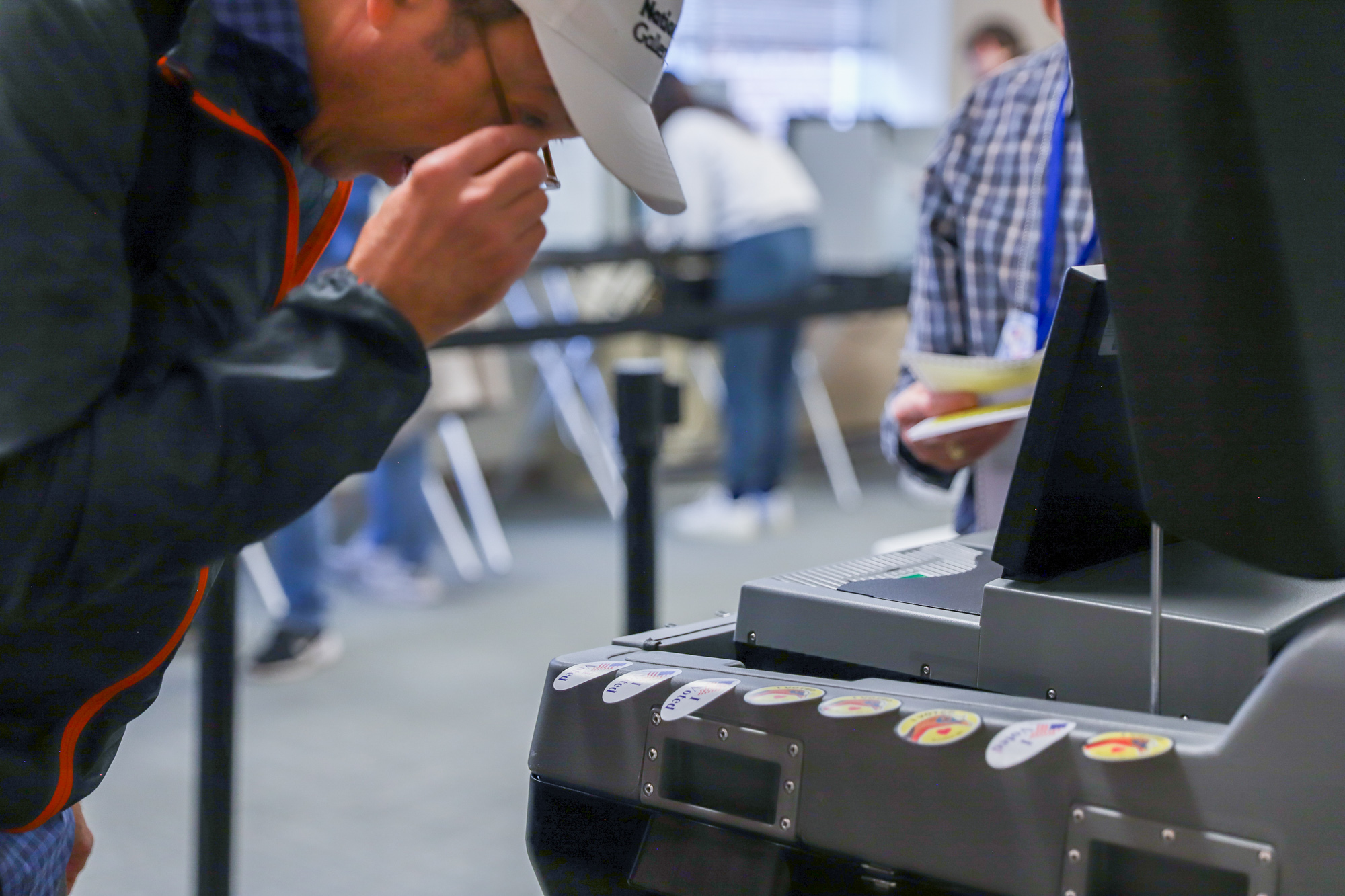Latino voters had a significant influence on the results of the 2024 presidential election on Tuesday, highlighting the complex impact of identity politics on voter decisions and turnout.

Votes for President-elect Donald Trump increased by 13% in the Latino community from 2020 to 2024, making it the demographic with the largest increase of Trump voters between elections, according to a report by NBC News. According to a CNN exit poll, 52% of Latinos said they voted for Vice President Kamala Harris. In 2020, 65% voted for President Joe Biden.
This election saw a record-breaking number of Latinos voting for the Republican party, beating former President George W. Bush, who accumulated 44% of the Latino vote in 2004, according to NBC News.
2024 BU graduate Michael Arellano, who uses they/them pronouns, said they served as an organizer for the Harris campaign in Texas. Arellano graduated with a bachelors and master’s degree in political science and wrote their thesis on “Latine identity in relationship to their political affiliation.”
Despite working on the campaign, Arellano said they were dissatisfied with how Harris’s campaign regarded Latinos as single-issue voters.
“When we talk about messaging for the Latine community, a lot of it is about social justice,” Arellano said. “That kind of messaging tends to be performative and that’s what people don’t like.”
The uptick in support for Trump came in spite of comments made about the Latino community at a New York Trump rally on Oct. 28, which many news outlets predicted would sway Latino voters against the then-candidate.
Comedian Tony Hinchcliffe called Puerto Rico a “floating island of garbage” at the rally, prompting a wave of criticism across the political spectrum.
Despite this, Cristela Cordero, a 67-year-old from Boston, said Hinchcliffe’s comment did not sway her vote.
“It was not said by Trump,” Cordero said in Spanish. “It’s the same as if I supported someone, made a comment and then others started attributing it to the person I support.”
Cordero said she is a registered independent, but she ultimately voted for Trump because her Christian values do not align with Harris’s platform.
“I am conservative on the issues that Kamala brings up, like abortion and homosexual rights,” Cordero said.
Some Latino Boston University students supported Harris’s presidential campaign.
BU senior Emma Obregon Dominguez said she and her parents became citizens this year after moving from Guatemala to the U.S. in 2015. She said she was “very excited” to this year in her home state of Florida, a former swing state with a large Latino population.
“I don’t want to have to think what’s going to happen if we allow [Trump] for four more years,” Dominguez said. “He already has shown with actions what he’s willing to do to not protect people like me.”
BU senior Guadalupe Gonzalez-Torres flew to her home state of Texas to vote. Torres said she wanted to “be here for my mom listening to the results.”
After Trump’s win, Torres said she was “shocked.”
Torres said one of the issues she’s most concerned about is immigrant identification, because she said Trump “generalizes all Latinos.”
Texas Gov. Greg Abbott recently signed an executive order requiring Texas hospitals to ask patients about their citizenship, according to the Associated Press.
“That is already something that is extremely shocking and it’s going to affect a lot of the people that I know directly,” Torres said. “[Trump] says that he’s only going to go for people that are criminals and drug addicts … but I don’t really think I believe him.”
Torres said she voted with reproductive rights in mind, noting Republicans took the Senate majority. She said the development would make it “so much easier” for bills limiting reproductive care to pass into law.
Molly Gramm, president of the Latine Student Alliance at Suffolk University, noted an increase in civic engagement from the Latino community in this election.
“Newly eligible Latine voters realize we have a voice and we can use that voice to vote,” Gramm said.
Gramm also said much of the Latino support for Harris came from her identity as part of a marginalized community, rather than specific policies she put forward.
“To see a person who is [a] marginalized community member, having the opportunity to run for office or to be on that ballot … is an inspiring and powerful thing,” Gramm said.
























































































































